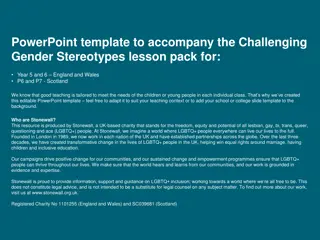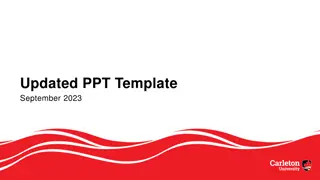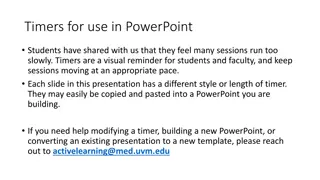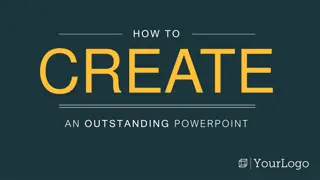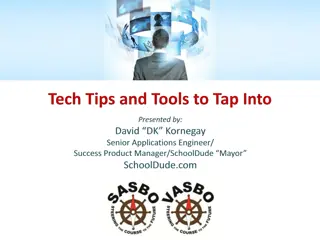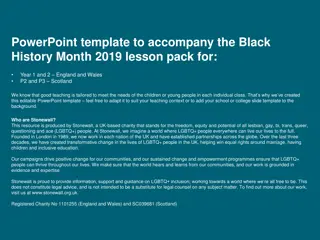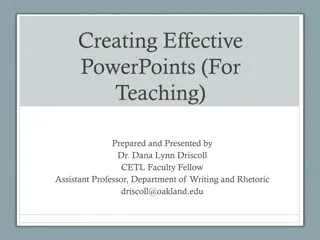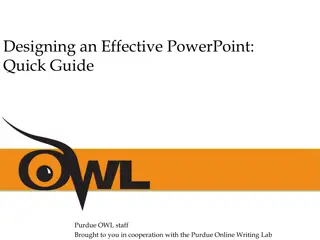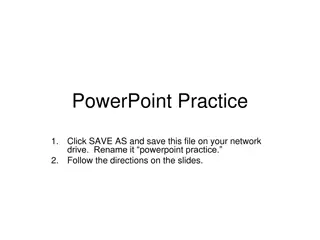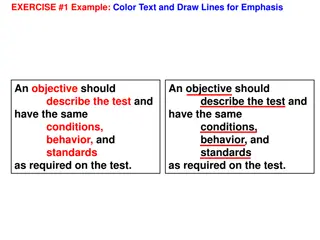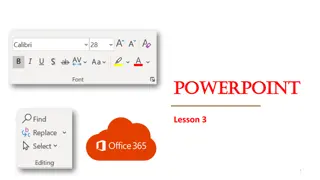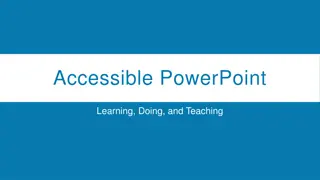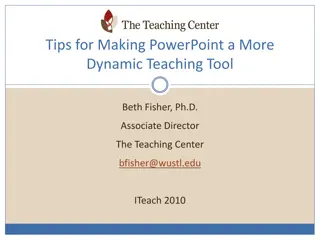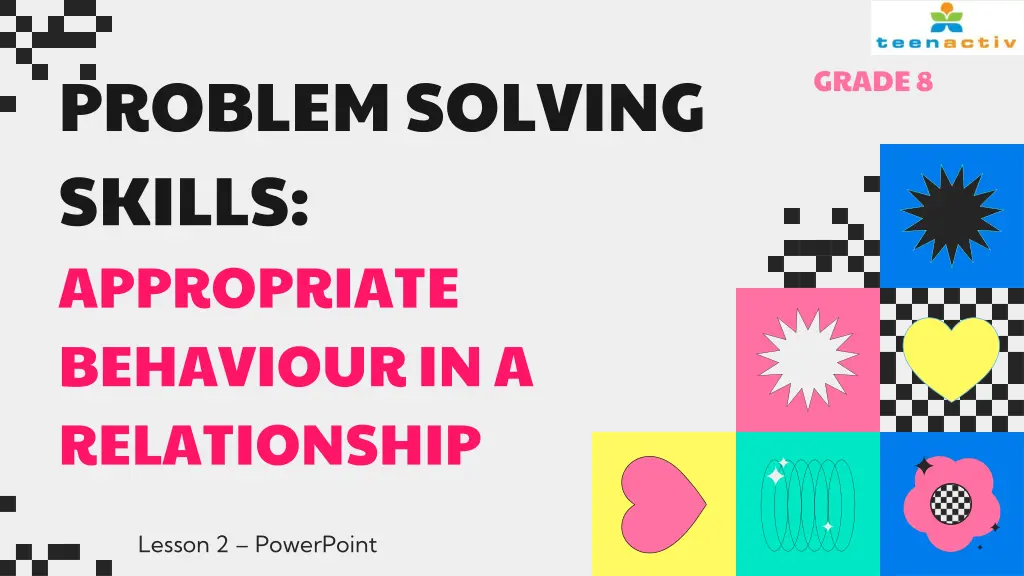
Effective Strategies for Dealing with Relationship Challenges
Learn essential problem-solving skills and assertive refusal techniques to handle inappropriate behavior in relationships, such as bullying, alcohol, and drug offers. Discover methods for identifying issues, evaluating solutions, and standing up for yourself confidently. Take action and prevent harmful interactions in various relationship scenarios.
Uploaded on | 0 Views
Download Presentation

Please find below an Image/Link to download the presentation.
The content on the website is provided AS IS for your information and personal use only. It may not be sold, licensed, or shared on other websites without obtaining consent from the author. If you encounter any issues during the download, it is possible that the publisher has removed the file from their server.
You are allowed to download the files provided on this website for personal or commercial use, subject to the condition that they are used lawfully. All files are the property of their respective owners.
The content on the website is provided AS IS for your information and personal use only. It may not be sold, licensed, or shared on other websites without obtaining consent from the author.
E N D
Presentation Transcript
PROBLEM SOLVING SKILLS: APPROPRIATE BEHAVIOUR IN A RELATIONSHIP GRADE 8 Lesson 2 PowerPoint
As we've discussed, a good relationship is based on communication, sharing, caring, mutual respect and trust. As well as honesty and fairness. BUT what do we do if our friends are behaving inappropriately? What do we do if they behave unfairly towards us or if they do something to hurt us and break our trust or are disrespectful?
IDEAL METHOD: Identify the problem D Describe possible solutions E Evaluate each option A Act on the chosen strategy L Look back and learn I
ASSERTIVE REFUSAL SKILLS ALCOHOL & DRUGS
Being able to refuse requests from others is an important part of being assertive and standing up for yourself. Sometimes you may run into old friends who don t know or don t care that you don t do drugs or drink, they may offer or push you to use. It may sound simple but turning down an offer to use can be difficult as some people are very skilled and persuasive when offering drugs or alcohol! Practicing assertive refusal skills will help you be more successful at saying no and abstaining from use! Assertive refusal skills are skills that allow you to be effective at saying no to drug or alcohol offers.
Respond Rapidly Respond with a clear & firm no Broken Record Pay attention to body language & non-verbal cues
INAPPROPRIATE BEHAVIOUR IN A RELATIONSHIP: BULLYING
BULLYING IS UNACCEPTABLE and these are the ways you can be bullied: People calling you names Making things up to get you into trouble Hitting, pinching, biting, pushing, and shoving Taking things away from you Damaging your belongings Stealing your money Taking your friends away from you Spreading rumours Threats and intimidation
What to do if you are being bullied You have to tell someone. You may not want to do this because it means showing that you are vulnerable, that you are letting someone get the better of you. But really, it is very important to tell someone otherwise, it may not stop. Speak to a friend, parent, brother or sister, uncle, or aunt and most importantly, if it happens at school, speak to your teacher.
COMMUNICATION SKILLS: ABILITY TO DISAGREE IN CONSTRUCTIVE WAYS AND APPROPRIATE WAYS TO END A RELATIONSHIP
How to DISAGREE in a CONSTRUCTIVE WAY: Think about the disagreement and how you may feel about it Talk to the other person, discuss the problem and see if you can't find a solution together It is important to take turns to speak and listen never cut each other off Actively listening means not interrupting and making sure that you understand what your friend is saying Try and understand your friend s point of view Stay calm, talk clearly and be honest about your point of view Be reasonable and not overly emotional, this is not the time for threats attacks or being rude Focus on constructive solutions and not blaming each other and trying to be right If it comes to it and you can't find a solution- sometimes, we need to agree to disagree
HOW TO END A RELATIONSHIP There can be many reasons why a relationship may come to an end. You may end a relationship because you've had a disagreement and you're unable to find resolution, maybe you have to move away or maybe you feel that you have both changed and you no longer get on. We would all like to believe that every relationship lasts forever, but unfortunately not all relationships can. When it comes to ending a relationship, it is best to be honest and straight forward with the other person there is no need to be rude or start ignoring them. We've talked about how important communication is and even when you're ending a relationship it is still a very important factor
The end of a relationship can be very painful and it is upsetting whether you are the one that ends it, or the other person is. There are many emotions that come with ending our relationship, turn to your friends for support and allow yourself to feel the emotions that come with it. Here is something to consider when ending a relationship: 1) Plan 2) Look after yourself 3) Remember it s not your fault.
REMEMBER: A positive relationship is based on open and honest communication, trust, respect, and compassion. It has healthy boundaries that allow you to be who you are, do what you like and spend time with your friends and family. Pay attention to unhealthy behaviours in your relationships such as power and control, disrespect and the use of physical force and ask for help if needed. Always remember that a relationship should make you happy and everyone deserves to have positive relationships.
QUESTION BOX

